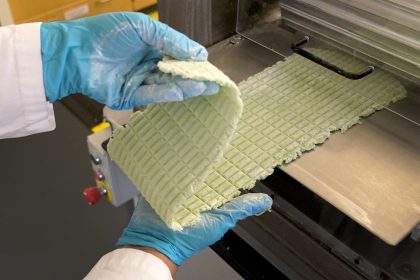FDA Rebuffs Total Ban of Harmful Chemicals in Food Packaging

SILVER SPRING, Md. — Watch what you eat, or at least what your food is exposed to. The Food and Drug Administration on Thursday amended its food additive regulations to no longer provide for previously authorized chemicals to be used due to their abandonment by the industry.
The rule stops short of imposing a total ban on a hazardous group of compounds called “phthalates,” which have been found to cause a myriad of health issues. Researchers in the past few years have connected exposure to phthalates to neurodevelopmental issues, behavioral issues, autism spectrum disorders, attention-deficit hyperactivity disorder, breast cancer, obesity and Type 2 diabetes, asthma, altered reproductive development and fertility issues in males.
These chemicals are typically used in plastic products to make them softer and more durable, although related compounds have been used as plasticizers for cosmetic products in the past. Phthalates are used in hundreds of products ranging from personal care products to food packaging, according to the FDA.
The FDA’s ruling on Thursday came in response to petitions submitted by health and environmental groups to limit the use of the compounds in food contact applications. By amending the rule, the FDA is conforming to a petition submitted in July 2018 by the Flexible Vinyl Alliance.
“If, in the future, a manufacturer wants to use any of the revoked phthalates for use in food contact applications, we expect the manufacturer to submit either a food additive petition or a food contact substance notification to the agency because these intended uses were previously authorized under our food additive authorities,” the FDA said in its decision. The rule change still permits the use of nine other similar compounds in food contact applications.
The FDA denied a separate food additive petition filed by public interest groups that requested the agency to revoke its food additive regulations for the food contact use of 28 phthalates.
Further, the FDA also denied a related petition by the same public interest groups requesting a ban on the food contact use for certain phthalates and the revocation of authorization for other phthalates based on the safety concerns laid out in their food additive petition.
Additionally, the FDA issued a request for information about current food contact uses and safety data for the remaining phthalates still authorized as plasticizers for use in food contact applications.
Comments on this request for information may be submitted by July 19, to Regulations.gov. The FDA said it denied the petition because it did not “demonstrate through scientific data or information that these actions are warranted.”
Research has continually shown phthalates lead to adverse health outcomes because they interfere with hormone-regulated processes in the body, according to a study published in the National Library of Medicine. Other studies of phthalates conducted on animals have shown decreases in testosterone and birth defects in the offspring of pregnant mothers.
“FDA has failed the public by ignoring the growing evidence of phthalates’ harmful effects on our health,” Kristina Sinclair, associate attorney at the Center for Food Safety, said in a statement shared with The Well News. “The agency’s refusal to listen to the science and ban phthalates from our food supply will have significant, detrimental health effects on women, children, and other vulnerable populations for years to come.”
Because people come into contact with large numbers and varieties of the chemical compounds, it can be hard to pin down the cumulative exposure considerations of all types of phthalates. A chronic safety hazard advisory panel on phthalates issued a report in 2014 to the U.S. Consumer Product Safety Commission that found exposure during gestation may contribute to neurobehavioral effects in male infants or children.
A report issued by the Rudd Center for Food Policy and Obesity’s Council on Black Health found those living in underserved areas are exposed to high concentrations of phthalates. Consequently, marginalized and low-income communities tend to suffer more from their exposure to the compounds because of their tendency to rely on less-expensive fast food in their diets.
“FDA’s decision recklessly green-lights ongoing contamination of our food with phthalates, putting another generation of children at risk of life-altering harm to their brain development and exacerbating health inequities experienced by Black and Latina women,” Earthjustice attorney Katherine O’Brien said in a statement shared with The Well News.
“FDA’s announcement that it will now start reviewing new data on phthalate safety — six years after advocates sounded the alarm — is outrageous and seeks to sidestep FDA’s legal duty to address the current science in proceedings on the existing petitions.”
Reece can be reached at [email protected] and https://twitter.com/ReeceNWrites
























